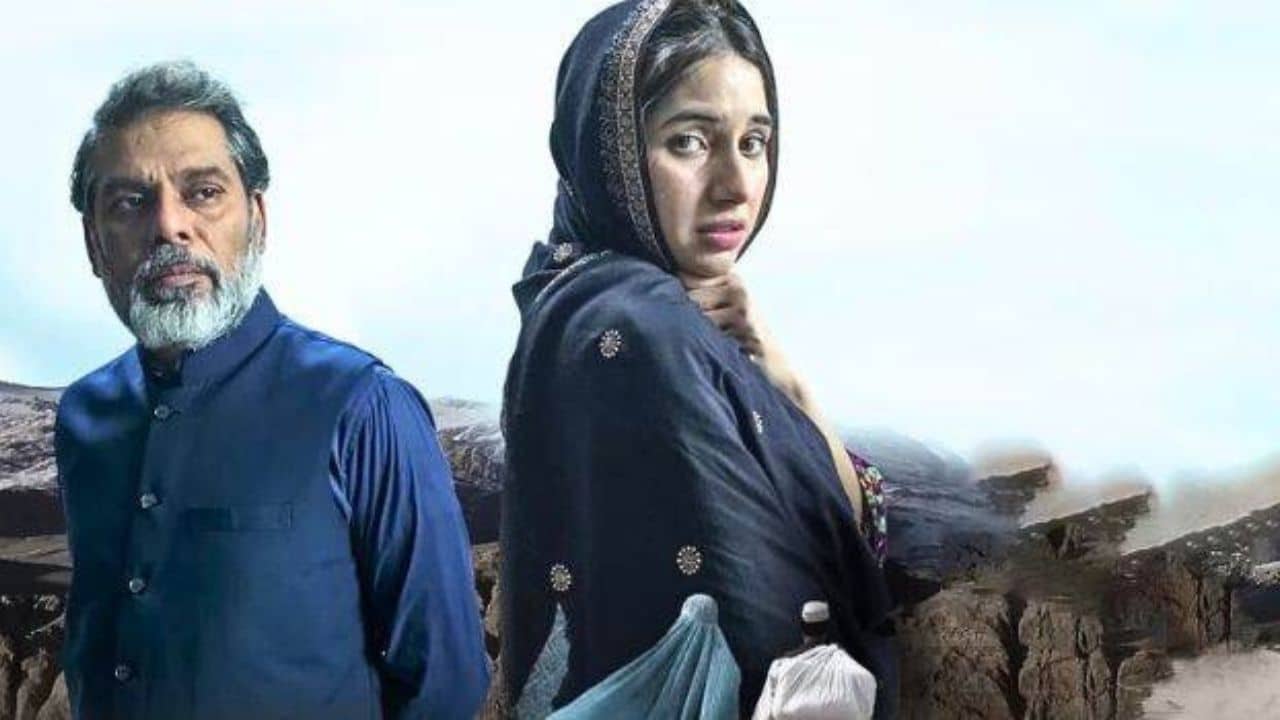Who would have thought that at a time when Pakistan is seeing discrimination and hatred displayed openly for the vulnerable Afghan refugees, we get to watch a television show displaying cultural solidarity and harmony in such a beautiful manner? When Green Entertainment announced ‘Kabli Pulao’ among their list of to-be-released dramas, many were curious about whether it would follow the lines of the misogynist trope involving an old man marrying a younger woman, given the wide age gap between the main lead actors Sabeen Farooq and Mohammed Ehteshamuddin. But, this is a show every person needs to watch to accept our cultural differences, and that no one is an ‘illegal alien’.
The drama centres around elderly bachelor Hajji Mushtaq, who spent his life caring for his sisters and their children, and is lovingly referred to as ‘baray abba’ by them. When he meets Barbeena while travelling in Mardan, her brother begs him to marry her to protect her from falling into the hands of her abusive brother-in-law. Hajji Mushtaq reluctantly agrees to do so.
Their marriage is obviously not met with approval at first. Barbeena’s entry into Mushtaq’s family is met with scorn and racism. Mushtaq’s sisters Chammo and Zubaida at first suspect she is a spy, sent to take over their brother’s wealth and force them out of the family. Barbeena has to pretend she is a newly hired maid, and after a feud reveals that she is actually Mushtaq’s wife, she is met with accusations of shaming the honour of the family.
But the willingness displayed by Barbeena to win over the family, and especially how she brings joy into Hajji Mushtaq’s life, and then slowly for the rest of the family members, is something no other drama has ever displayed. It is Barbeena’s Afghan background that helps her win over everyone else. In episode four, the family fawns over her roghni naans and her kabli pulao. Barbeena bonds with the younger children by singing Afghan songs, sharing her traditional dresses and dancing with them. Soon she partners with Hajji Mushtaq to set up her business selling the kabli pulao to customers.

It was some time ago when I was re-watching episode three, where the family hounds Hajji Mustaq and begs him to send Barbeena away. Ironically at this point, there was a heartbreaking video going viral on the internet featuring a young Afghan boy with tears in his eyes saying goodbye to his classmates as his family was being sent back to Afghanistan. Since that moment, we’ve seen consistently how much burden the term ‘illegal alien’ carries, the way it strips a human of their humanity and dignity.
Your Namak (Salt) was enough. Thanks everyone. An Afghan student says goodbye to his classmates. pic.twitter.com/DSg16wBeKv
— Arshad Yousafzai (@Arshadyousafzay) October 30, 2023
Videos from Aurat March show how Afghan refugees were kept in cramped conditions, denied basic respect as their children were picked up by officers and ‘accidentally deported’ over racist assumptions. Irony lies in how this is the same country where ‘Kabuli Pulao’ was became one of the best television shows to come out this year, yet it’s sole inspiration, the Afghan refugees, are treated with such malice.
The enduring message of Barbeena’s resilience, and her blossoming relationship with Hajji Mushtaq, was that there is beauty in our cultural diversity. Barbeena’s uniqueness in her Afghan heritage, turned this drama into more than just a simple love story but a message on how Pakistani’s need to know more than ever to open up their hearts rather than shut them down. Accept our neighbours as our friends rather than turn them away because of our own internalised racism.
This message resonates with the horrific treatment of the Palestinians in Gaza, and how their oppression is justified with terms like ‘human animals’ and ‘barbarians’. Because now more than ever, us Pakistanis need to become the anti-thesis of hateful rhetoric and learn to hold those close who had no choice but to leave their homes in search of better opportunities.
All episodes of ‘Kabli Pulao’ are available to watch on Youtube.







